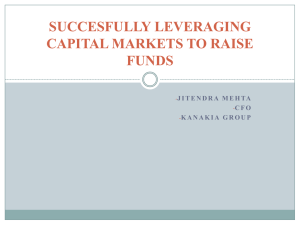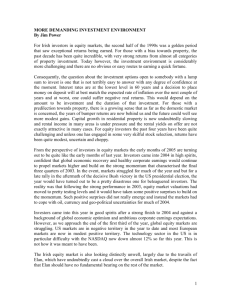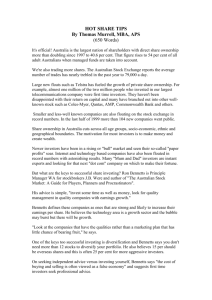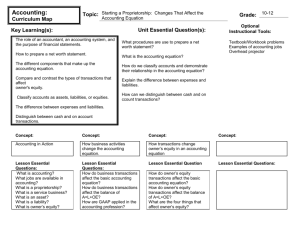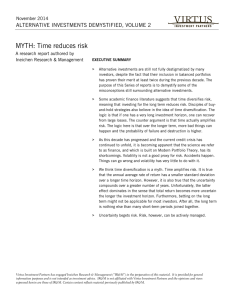is this a good time to invest in equity funds
advertisement
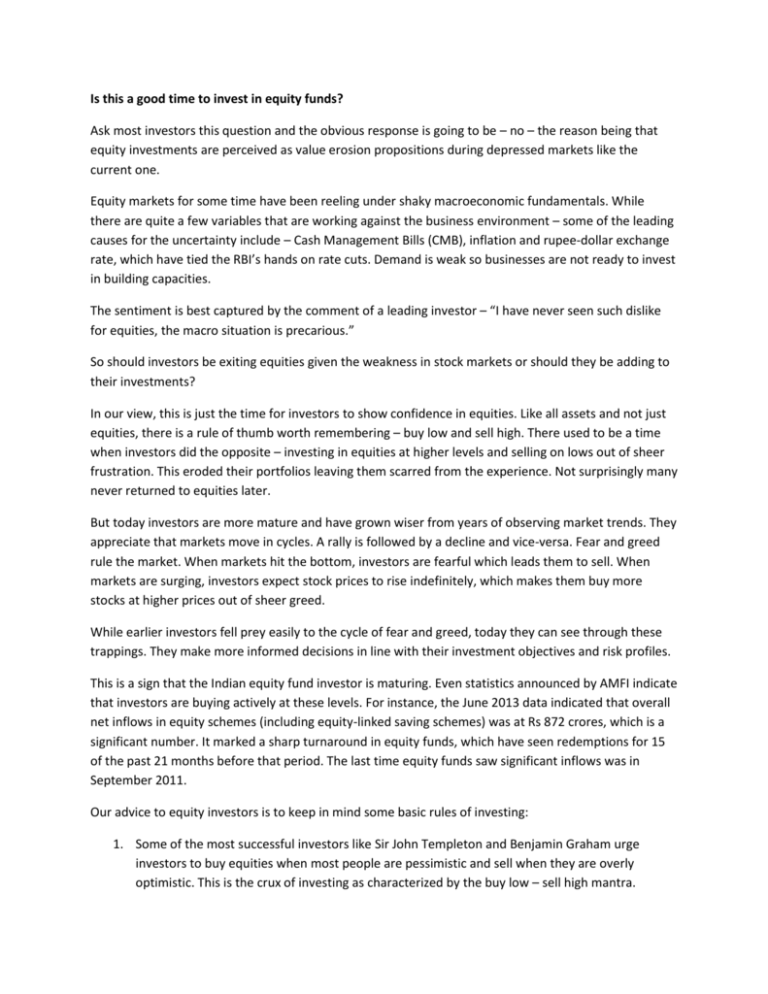
Is this a good time to invest in equity funds? Ask most investors this question and the obvious response is going to be – no – the reason being that equity investments are perceived as value erosion propositions during depressed markets like the current one. Equity markets for some time have been reeling under shaky macroeconomic fundamentals. While there are quite a few variables that are working against the business environment – some of the leading causes for the uncertainty include – Cash Management Bills (CMB), inflation and rupee-dollar exchange rate, which have tied the RBI’s hands on rate cuts. Demand is weak so businesses are not ready to invest in building capacities. The sentiment is best captured by the comment of a leading investor – “I have never seen such dislike for equities, the macro situation is precarious.” So should investors be exiting equities given the weakness in stock markets or should they be adding to their investments? In our view, this is just the time for investors to show confidence in equities. Like all assets and not just equities, there is a rule of thumb worth remembering – buy low and sell high. There used to be a time when investors did the opposite – investing in equities at higher levels and selling on lows out of sheer frustration. This eroded their portfolios leaving them scarred from the experience. Not surprisingly many never returned to equities later. But today investors are more mature and have grown wiser from years of observing market trends. They appreciate that markets move in cycles. A rally is followed by a decline and vice-versa. Fear and greed rule the market. When markets hit the bottom, investors are fearful which leads them to sell. When markets are surging, investors expect stock prices to rise indefinitely, which makes them buy more stocks at higher prices out of sheer greed. While earlier investors fell prey easily to the cycle of fear and greed, today they can see through these trappings. They make more informed decisions in line with their investment objectives and risk profiles. This is a sign that the Indian equity fund investor is maturing. Even statistics announced by AMFI indicate that investors are buying actively at these levels. For instance, the June 2013 data indicated that overall net inflows in equity schemes (including equity-linked saving schemes) was at Rs 872 crores, which is a significant number. It marked a sharp turnaround in equity funds, which have seen redemptions for 15 of the past 21 months before that period. The last time equity funds saw significant inflows was in September 2011. Our advice to equity investors is to keep in mind some basic rules of investing: 1. Some of the most successful investors like Sir John Templeton and Benjamin Graham urge investors to buy equities when most people are pessimistic and sell when they are overly optimistic. This is the crux of investing as characterized by the buy low – sell high mantra. 2. Invest regularly in equities regardless of market levels. Studies have pointed out that investing regularly in equities through an SIP is more effective than investing selectively in a bid to time the market. In the long run it is not about timing the market; it is time in the market. 3. Equity is for long-term investors. So temporary market shifts and trends must be ignored. Invest diligently in the financial plan drafted by your financial planner. Over long-term, equities are likely to outperform other asset classes, something we have seen already. So if markets are depressed due to macroeconomic factors or technical shocks, don’t get discouraged. Take it as an opportunity to add to your equity investments as dictated by your investment plan. Mutual Fund Investment are subject market risk, please read all scheme related documents carefully An Investor Education initiative by Baroda Pioneer Mutual Fund



